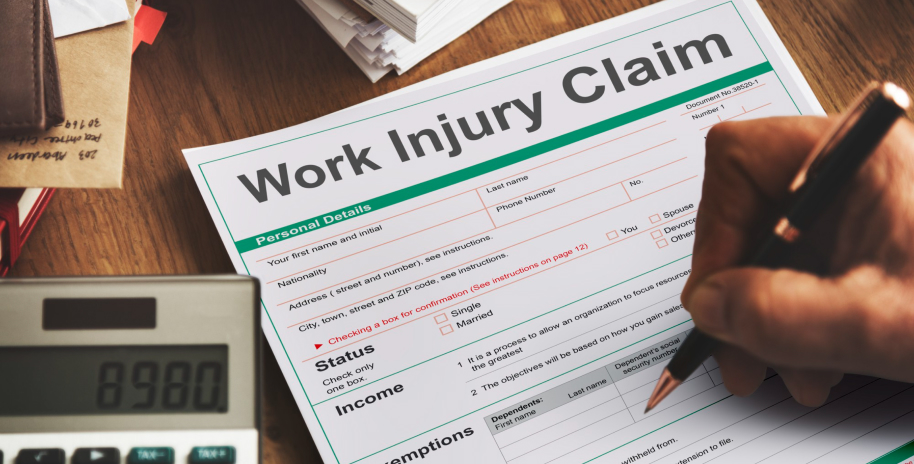
Workers’ compensation is a system that aims to protect employees suffering from injuries or illnesses realted to their jobs. Regardless of fault, it ensures they receive medical care and financial compensation, promoting faster recovery and return to work. This no-fault insurance aids in minimizing lengthy legal disputes and aims to protect both the worker and the employer.
Effective understanding and navigation of this system are essential, and expert guidance from professionals such as Attorney Dan Santarsiero can be invaluable in securing the benefits you deserve.
What is Workers’ Compensation?

Workers’ compensation is a system that provides benefits to workers who get injured or ill because of their job. This is also known as workman’s comp, work comp, or worker’s comp.
Workers’ compensation is based on the principle of “no-fault”. This means that workers do not have to prove that their employer was negligent or at fault for their injury or illness. Workers only have to show that their injury or illness was caused by their work or occurred while they were working.
Also, workers’ compensation can cover the following types of benefits:
- Medical benefits: Workers’ compensation can pay for the medical treatment and care that workers need for their work-related injury or illness. This can include doctor visits, hospital stays, surgery, medication, physical therapy, and other services.
- Wage loss benefits: Workers’ compensation can pay for a portion of the wages that workers lose because of their work-related injury or illness. This can include temporary disability benefits, which are paid while workers are recovering and unable to work, and permanent disability benefits, which are paid if workers have a permanent impairment or limitation because of their injury or illness.
- Death benefits: Workers’ compensation can pay for the funeral expenses and a lump sum payment to the surviving spouse and dependents of workers who die because of their work-related injury or illness.
Workers’ compensation can also cover other types of benefits, such as vocational rehabilitation, retraining, and education, depending on the state and the situation.
Types of Workers’ Compensation Benefits
According to New Jersey workplace accident lawyers, workers’ compensation benefits extend across several categories to address the varying impacts of workplace injuries. First and foremost are medical treatment benefits, guaranteed to cover all necessary and reasonable medical care related to the injury without any out-of-pocket costs to the injured worker.
Following closely are income replacement benefits, often indemnity benefits, crucial for maintaining financial stability when an injury results in temporary or permanent loss of wages. Lastly, specific loss benefits act as compensation for those who have suffered permanent loss or loss of use of a body part or who have sustained a severe disfigurement, usually in the form of a lump-sum payment.
How Does Workers’ Compensation Work?

Workers’ compensation is a system that involves different parties and processes. Here are the main steps of how workers’ compensation works:
Reporting the injury or illness
Workers who get injured or ill because of their work must report their injury or illness to their employer as soon as possible. Workers should also seek medical attention and inform their doctor that their injury or illness is work-related.
Filing a claim
Workers who want to receive workers’ compensation benefits must file a claim with their employer’s workers’ compensation insurance company. Workers should fill out the required forms and provide the necessary documentation, such as medical records, bills, and receipts. Also, workers should also keep copies of everything they submit and receive.
Accepting or denying the claim
The workers’ compensation insurance company will review the claim and decide whether to accept or deny it. The insurance company may also request more information or evidence from the worker, the employer, or the doctor. The insurance company must notify the worker of its decision within a certain time frame, depending on the state.
Receiving or appealing the decision
If the claim is accepted, the worker will start receiving the workers’ compensation benefits that they are entitled to. If the claim is denied, the worker can appeal the decision and request a hearing before a workers’ compensation judge or board. The worker may also hire a workers’ compensation lawyer in Orange Beach, AL (or elsewhere), to represent them and help them with the appeal process.
The Process of Filing a Workers’ Compensation Claim

Reporting the incident promptly to the employer is critical to initiate a workers’ compensation claim. Detailed and timely reporting sets the foundation for a valid claim, helping to establish a clear link between injury and employment. Once reported, the victim should seek immediate medical attention. Securing statements and documentation from healthcare providers will bolster the claim’s credibility. Understanding the filing process and timely submission of all necessary forms and documentation will significantly contribute to the efficiency and outcome of the claim.
Workers’ Rights and Employer Responsibilities

Workers’ compensation laws are underpinned by rights and responsibilities that ensure fair treatment and support for injured employees. Also, workers have the right to file a claim for any workplace injury or illness without intimidation or retaliation from their employer. On the flip side, employers are responsible for carrying workers’ compensation insurance for all employees and must handle injury reports with the urgency and seriousness they demand. The employer also must facilitate the claim process and cooperate with insurance carriers to secure the necessary benefits for the injured worker.
Common Challenges in Workers’ Compensation Cases

Even with a robust system, challenges and disagreements over eligibility, compensation levels, and specific benefits commonly arise. Workers may encounter skepticism regarding the severity of their injuries or entitlement to certain benefits, triggering disputes that can prolong the claim process. Delayed or outright denied claims can complicate matters further, often requiring additional steps such as gathering more evidence or attending hearings to resolve the issues.
How to Appeal a Workers’ Compensation Denial

Denial of workers’ compensation claims is a significant roadblock many injured workers face. The appeals process, while available, can be intricate and daunting. It typically involves submitting a formal request for reconsideration and appearing before a workers’ compensation judge or review board. During the hearing, the employee must provide compelling arguments and solid evidence to counter the denial, a task that’s often best handled with legal representation. Understanding the reasons for claim denial and how to navigate the appeals process is essential for securing rightful compensation.
The Role of Workers’ Compensation Lawyers

Lawyers specializing in workers’ compensation can significantly impact the outcome of a claim, especially in complex situations where the need to navigate legal nuances becomes critical. They provide expert representation in disputed claims or appeals and guide their clients through the procedural maze of the workers’ compensation system to ensure fair treatment and maximize potential benefits. The importance of such legal expertise has been underscored by recent events, as noted in an NPR report, where workers faced challenges in the claims process during the COVID-19 pandemic.
Preventing Workplace Injuries: Employer Initiatives

An ounce of prevention is worth a pound of cure, especially when dealing with workplace injuries. Employers are encouraged to proactively establish and maintain a safety culture through ongoing education, implementing comprehensive safety protocols, and regular equipment maintenance. These measures can greatly reduce the number of injuries and, consequently, workers’ compensation claims. An actionable safety policy reduces risks and underscores the employer’s commitment to their employees’ well-being.
Current Trends and News in Workers’ Compensation

The field of workers’ compensation is continuously evolving, with legislative reforms and shifting workplace dynamics influencing its trajectory. Keeping abreast of these developments is crucial for employers and employees to understand their rights and prepare for future challenges.
In closing, navigating the intricacies of workers’ compensation requires knowledge, foresight, and, sometimes, professional representation. By understanding the system, knowing one’s rights and responsibilities, and staying informed about current trends, employees can ensure they receive the full spectrum of benefits they are due.
Active participation in the claims process and utilizing available resources, such as experienced attorneys, can aid in overcoming obstacles and securing just compensation for workplace injuries.
Bottom Line
Workers’ compensation is a system that provides benefits to workers who get injured or ill because of their job. Workers’ compensation can cover medical expenses, lost wages, disability benefits, and death benefits. Also, workers’ compensation can also protect employers from lawsuits by injured workers.
However, workers’ compensation is not a simple or straightforward system. It is governed by different laws and regulations in each state, and it involves various parties, such as employers, insurance companies, doctors, lawyers, and judges. Navigating the workers’ compensation system can be confusing, frustrating, and time-consuming for both workers and employers.
Therefore, it is important to understand the basics of workers’ compensation, and to seek professional help if needed. Workers and employers can consult with workers’ compensation lawyers, agents, or specialists, who can advise them on their rights, responsibilities, and options. Also, workers and employers can also visit the websites of their state’s workers’ compensation agency, board, or commission, which can provide more information and resources on workers’ compensation.
Workers’ compensation is a system that aims to protect and compensate workers and employers for work-related injuries and illnesses. By following the tips above, workers and employers can navigate the complex system and achieve the best possible outcome for their situation.
Key Takeaways:
- Insight into the different types of workers’ compensation benefits.
- Guidance on the process of filing a workers’ compensation claim.
- Understanding your rights and what to do if your claim is denied.
- How an attorney can assist in navigating workers’ compensation issues.
- Preventative measures and current trends are affecting workers’ compensation.
Read Also:




























